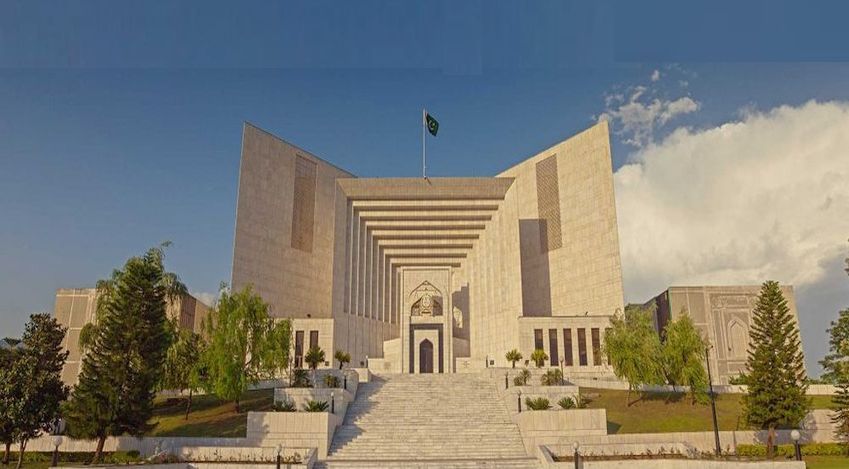Supreme Court of Pakistan Affirms Right to a Healthy Environment as Fundamental Right
Islamabad 01-11-2024: In a landmark decision, the Supreme Court of Pakistan has ruled that the right to a "clean and healthy sustainable environment" is now a constitutionally protected fundamental right under the newly inserted Article 9A. This ruling, issued in Civil Petition No. 524-P of 2015 and delivered by Mr. Chief Justice Qazi Faez Isa, addresses the illegal cutting of 218 Shisham trees in Khyber Pakhtunkhwa and highlights Pakistan’s alarming deforestation and climate vulnerabilities.
The case originally began as a complaint against illegal tree-felling in KP, but evolved into a broader discussion on the environmental responsibilities of government agencies. The Supreme Court emphasized that deforestation and environmental degradation have severe consequences, from landslides and flooding to reduced capacity for greenhouse gas sequestration, making Pakistan one of the most climate-vulnerable countries.
The Court highlighted that, following the Constitution (Twenty-sixth Amendment) Act, 2024, Article 9A now guarantees every Pakistani the right to a "clean and healthy sustainable environment." This right elevates environmental protection to the status of fundamental rights, alongside previous interpretations of Article 9 (right to life) that connected quality of life to a safe environment.
The Supreme Court called on the Khyber Pakhtunkhwa government to take immediate and transparent action in managing forest resources and preventing illegal logging. It criticized the inadequacy of a report submitted by the Division Forest Officer of Mardan, citing a lack of accountability, and reminded government officials of their duty to ensure transparency and responsibility in environmental matters.
Emphasizing that environmental preservation aligns with Islamic principles, the Court referred to teachings from the Quran and sayings of Prophet Muhammad (PBUH) on the importance of protecting natural resources. This approach reinforces both the ethical and legal obligation for environmental conservation in Pakistan.
The Court concluded the case with an assurance from the Khyber Pakhtunkhwa government that it would prioritize sustainable environmental practices in line with the new constitutional mandate under Article 9A. This aligns Pakistan with global environmental standards and strengthens its commitment to sustainability.
This judgment is a significant step forward in Pakistan’s environmental jurisprudence. By embedding environmental rights in the Constitution, Pakistan joins a select group of nations that constitutionally safeguard environmental protection. Legal experts believe this ruling will strengthen future efforts to protect Pakistan’s natural resources and encourage sustainable development across the country.
This decision also underlines the Supreme Court’s role in holding state institutions accountable for their constitutional obligations, reinforcing the principles of the public trust doctrine, which positions the state as a steward of natural resources for public benefit. Legal analysts view the judgment as a clear directive for stricter environmental governance and greater state accountability in resource management.
The ruling is expected to have wide-reaching impacts on Pakistan’s environmental policies, forest conservation efforts, and the role of government agencies in protecting the country’s natural resources amidst mounting climate challenges.
Powered by Froala Editor








